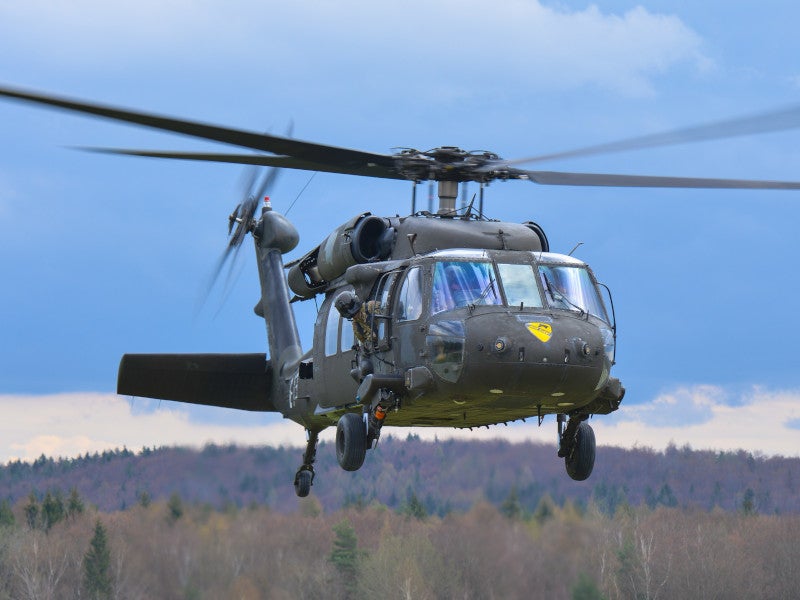Maintenance and Upkeep for UH 60 Helicopters
Maintenance and Upkeep for UH 60 Helicopters
Blog Article
The Impact of Sustainable Practices on the Future of Aircraft Procedures and Emissions Reduction
As the air travel sector encounters raising examination over its environmental effect, the adoption of sustainable techniques emerges as a crucial path towards future airplane operations and discharges decrease. Developments in sustainable aeronautics gas and advancements in hybrid propulsion modern technologies stand at the forefront of this makeover, appealing substantial reductions in greenhouse gas emissions.

Review of Sustainable Practices
Sustainable practices in airplane procedures incorporate a series of approaches focused on lowering environmental influence while keeping functional effectiveness. These techniques are essential in the aviation industry's dedication to minimizing its carbon impact and sticking to international ecological requirements. Secret efforts include maximizing trip courses to lower gas usage, enhancing upkeep protocols to ensure airplane run at peak performance, and implementing sophisticated technologies such as winglets and light-weight products that improve aerodynamics.

Training and involving staff on sustainability methods additionally play a vital duty, cultivating a society of ecological responsibility within companies. Generally, the combination of these lasting practices not just helps decrease exhausts yet also enhances the lasting practicality of the air travel sector, guaranteeing it satisfies the demands of both clients and governing bodies while adding to global sustainability goals.
Ingenious Fuel Alternatives
Various innovative gas alternatives are becoming crucial options to minimize the air travel sector's reliance on traditional nonrenewable fuel sources. Amongst these choices, Sustainable Air travel Fuels (SAFs) have acquired considerable attention because of their possible to reduce lifecycle greenhouse gas emissions by as much as 80% compared to traditional jet gas. SAFs are acquired from various feedstocks, including waste oils, farming residues, and also algae, making them a versatile option for the sector.
Another appealing choice is hydrogen gas, which, when used in gas cells, generates just water vapor as a by-product. Additionally, electrical propulsion systems are being explored, leveraging battery innovation to power airplane.
Lastly, biofuels stemmed from biomass are being checked out, providing a sustainable choice that can be combined with conventional fuels. Jointly, these innovative fuel options represent an essential step towards achieving a sustainable air travel ecological community, straightening with international discharges reduction targets and improving the sector's environmental stewardship.
Technical Innovations in Air Travel

How can technical improvements reshape the future of aeronautics? Developments such as hybrid and electrical propulsion systems are at the forefront, encouraging substantial decreases in gas intake and greenhouse gas exhausts.
Moreover, the implementation of sophisticated products, such as light-weight composites, adds to enhanced the rules of aerodynamics and fuel efficiency. Using expert system and maker discovering in trip operations enhances course planning and decreases gas burn by allowing real-time modifications based on weather and web traffic problems. In addition, the growth of self-governing and remotely piloted aircraft systems stands to transform freight and guest transport, possibly boosting effectiveness while minimizing human mistake.
Moreover, sustainable air travel modern technologies, consisting of advanced air traffic administration systems, can decrease and improve procedures blockage, leading to reduced discharges during flight. These innovations jointly represent a paradigm shift in aviation, guaranteeing a future where sustainability and functional performance are linked, thus sustaining the sector's commitment to lowering its ecological impact.

Governing Structure and Conformity
Due to the growing focus on environmental stewardship within the aviation industry, the governing structure regulating airplane operations is developing to promote sustainable practices. Regulative bodies, such as the International Civil Air Travel Organization (ICAO) and various national aeronautics authorities, are introducing strict guidelines targeted at reducing discharges and boosting functional effectiveness.
These guidelines typically consist of the adoption of Lasting Aeronautics Fuel (SAF), which has been identified as a vital part in accomplishing reduced carbon impacts. Additionally, conformity with these guidelines requires airline companies to carry out advanced technologies and functional practices, such as optimized trip courses and improved air website traffic management, to decrease fuel usage.
In addition, the enforcement of emissions trading schemes and important site carbon countering efforts is coming to be progressively common, compelling airlines to monitor and report their discharges precisely. Non-compliance can cause considerable penalties, therefore pressing drivers to prioritize sustainability in their business designs.
Inevitably, the developing governing landscape not just drives development and financial investment in environment-friendly innovations however likewise fosters a culture of liability within the aviation industry. As these structures proceed to establish, the concentrate on sustainable practices will certainly be indispensable to accomplishing the market's long-term ecological objectives.
Future Trends in Aircraft Procedures
As the air travel industry adapts to an increasingly rigorous regulative atmosphere, future fads in airplane procedures are readied to concentrate on ingenious remedies that even more enhance sustainability and effectiveness - uh 60. Trick advancements will likely consist of the fostering of advanced air web traffic administration systems, which use real-time data and expert system to optimize flight paths, lowering fuel consumption and discharges
Another considerable fad is the increased assimilation of sustainable air travel gas (SAFs) These alternatives to conventional jet gas, stemmed from eco-friendly sources, can dramatically reduce lifecycle greenhouse gas discharges. The sector's dedication to SAFs will likely accelerate as airlines collaborate with fuel manufacturers to ensure availability and cost-effectiveness.
Furthermore, the press towards electrification and crossbreed propulsion systems is acquiring energy. Emerging airplane designs will include these technologies, offering quieter and much more efficient procedures, particularly for short-haul flights.
Final Thought
To conclude, the combination of sustainable practices in airplane procedures holds considerable potential for emissions decrease and boosted efficiency. The fostering of sustainable aeronautics gas, coupled with developments in electrical and hybrid propulsion systems, is necessary for decreasing lifecycle greenhouse gas emissions. Additionally, maximizing trip paths and embracing ingenious innovations add to a quieter and a lot more environmentally pleasant air travel field. Collectively, these initiatives align with international sustainability goals and lead the way for a greener future in read this post here aviation.
Developments in sustainable air travel gas and innovations in hybrid propulsion innovations stand at the center of this improvement, encouraging considerable decreases in greenhouse gas discharges.Various ingenious gas choices are emerging as critical services to decrease the air travel market's reliance on conventional fossil fuels - uh 60. Among these alternatives, Lasting Aviation Fuels (SAFs) have gained substantial interest due to their potential to reduce lifecycle greenhouse gas emissions by up to 80% contrasted to traditional jet fuels.Another substantial fad is the enhanced integration of more tips here lasting aeronautics fuels (SAFs) The adoption of lasting aeronautics gas, coupled with advancements in hybrid and electric propulsion systems, is important for decreasing lifecycle greenhouse gas exhausts
Report this page